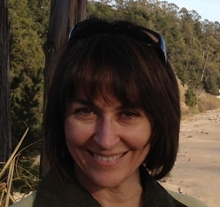Wednesday, July 29, 2009
Student Services Investment Matters
A new study finds student graduation rates at four-year universities increase with higher investment in student support services. Conducted by a graduate student in economics, Douglas Webber, and Ronald Ehrenberg, director of Cornell's University's Higher Education Institute, the study uses data from the Integrated Postsecondary Education Data System (IPEDS). These data were released to the Delta Cost Project, an effort to study rising tuition costs in higher education. One finding that the authors call "disturbing" is that higher expenditures in research correlate with lower graduation rates. The report also finds that spending more on student services, even if that involves spending less on instruction, improves graduation rates. The authors caution that these data require deeper analysis to inform institutional policy, but the findings are thought-provoking.
Wednesday, July 15, 2009
Obama's Community College Stimulus Package
President Obama's $12 billion community college stimulus promises more funding for online education, workforce training, and program completion, and response was generally positive from the educators. The president made the speech at Macomb Community College in a Detroit suburb. Community college expert James Jacobs, recently of the Community College Research Center at Columbia University, recently became president of Macomb. The focus on community college represents another sign that this segment of higher education will receive more prominence in this administration. Earlier this year, Obama nominated Martha Kanter, former chancellor of the Foothill-DeAnza Community College District in Northern California, as Under Secretary of Education.
Wednesday, July 1, 2009
Accountability Analysis
States vary widely in how they track college student achievement, according to a new report cited in Inside Higher Ed. Responses to the report are mixed. While the call to account is generally lauded, but attempts to characterize progress as a horse race strike some as gimmicky. In our project, Domain-Specific Assessment, which is sponsored by the U.S. Department of Education's Institute of Education Sciences, we are finding what cognitive scientists such as John Anderson and Richard Clark have found all along: Getting experts, such as postsecondary educators, to articulate the learning outcomes that matter is not so easy. Part of the problem is psychological: When someone becomes an expert in any field, lots of the cognitive work becomes automatic, chunked, and unconscious. Multiple steps become routines that are no longer carefully parsed. This can lead to a gap in how we articulate what it is that students need to learn in higher education. To see full report, check column to left.
Labels:
accountability,
assessment,
higher education
Subscribe to:
Posts (Atom)



